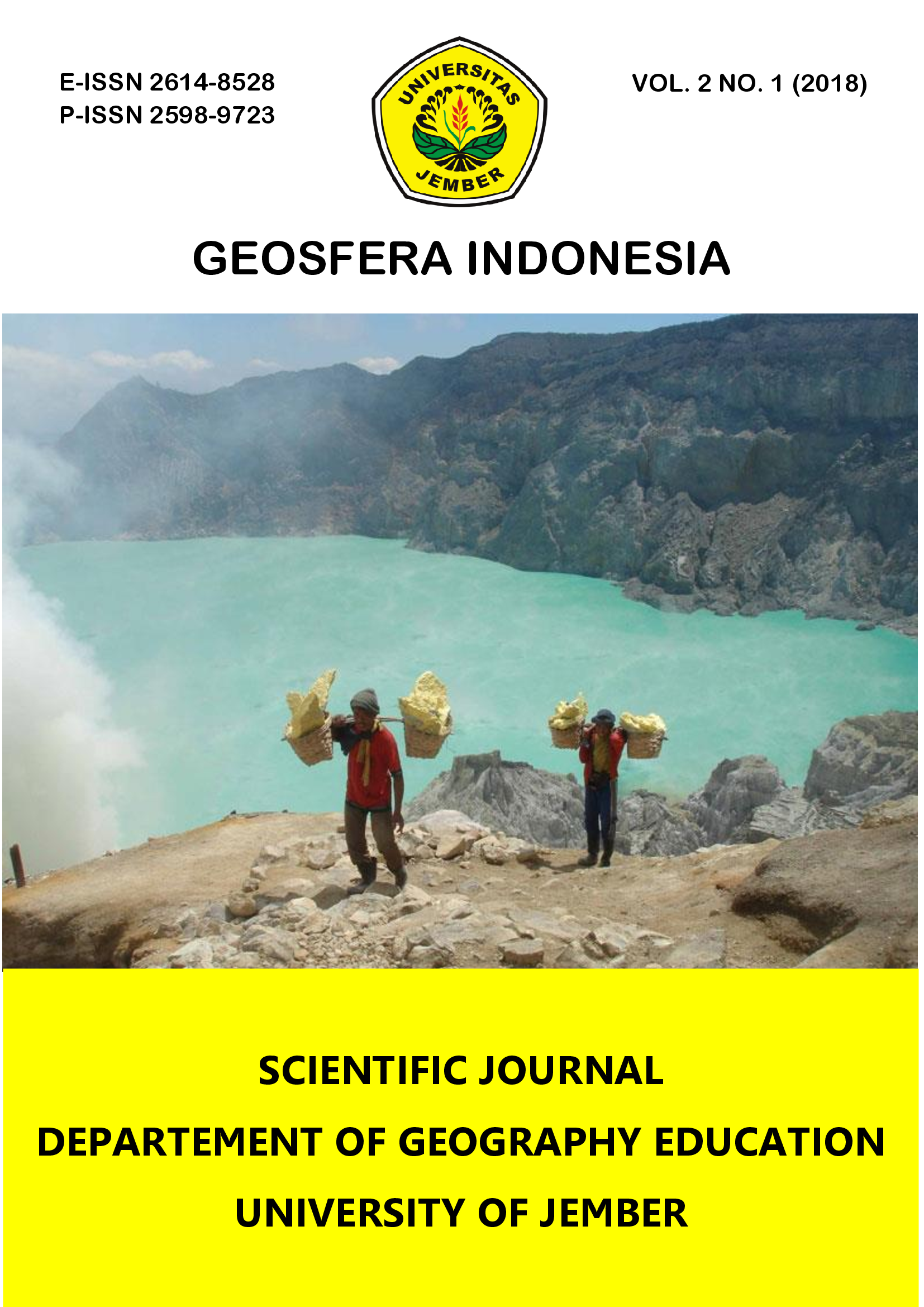THE INFLUENCE OF TEAM ASSISTED INDIVIDUALIZATION (TAI) ON GEOGRAPHY LEARNING MODEL TEAM OF JUNIOR HIGH SCHOOL
DOI:
https://doi.org/10.19184/geosi.v2i1.7529Abstract
Selection of the right learning model will increase the chances of achieving student learning success. The choice of learning model should pay attention to students' ability which is generally not the same among students one to another. The main factors are the various intelligence and student backgrounds. In addition, the absorptive capacity of the subject matter between students with one student is not the same so that affect learning outcomes achieved. Therefore, teachers need alternative learning model to overcome the diversity of student characteristics, one of them is with individual learning. However, the large number of students in the classroom and the various shortcomings in individual learning such as the effectiveness of learning, time, effort, and curriculum demands, as well as other obstacles, then individual learning is very unlikely to be implemented. An alternative that teachers can do is through the use of learning models that lead to programmed individual learning. The model of learning in accordance with the problem is Model Team Assisted Individualization (TAI). The TAI model is designed as a learning model that combines individual learning with cooperative learning. With the TAI model, the weaknesses that exist in individual learning and on cooperative learning can be minimized with the advantages that exist in both. This study aims to determine the effect of the use of TAI Model on the results of IPS geography learning. This research includes quasi experiment type, using Pretest-posttest Control Group Design design. The subjects consisted of one experimental class and one control class, grade VII student SMPN 4 Lumajang. The research instrument is a test consisting of prates and pascates. The data analysis technique uses t-test with SPSS 16.00 for Windows. The result of data analysis shows that the learning result of IPS geography of students using TAI model is better than students who do not use TAI Model. Thus it can be argued that the use of TAI model influences the learning outcomes Geography IPS Geography students proposed for teachers in the field of study Geography is to make the Model TAI as an alternative model of learning to improve student learning outcomes. Suggestions for further research are piloting the TAI Model on different materials and levels of higher classes or schools, as well as combining with more varied learning media so as to show a great influence on student learning outcomes and gain greater benefits from the TAI Model.
Key Words: Model Team Assisted Individualization (TAI), Geography Learning Result
Copyright (c) 2018 Geosfera Indonesia Journal and Department of Geography Education, University of Jember
Copyright Notice

This work is licensed under a Creative Commons Attribution-Share A like 4.0 International License



